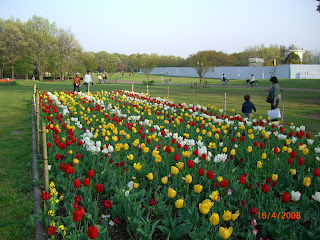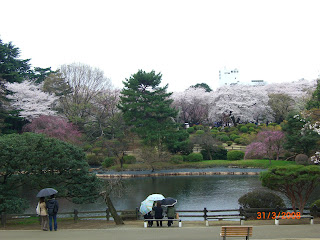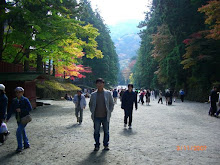- Create a work environment in which healthy conflict is encouraged by setting clear expectations.
- Reward, recognize, and thank people who are willing to take a stand and support their position.
- If you experience little dissention in your group, examine your own actions.
- Expect people to support their opinions and recommendations with data and facts.
- Create a group norm that conflict around ideas and direction is expected and that personal attacks are not tolerated.
- Provide employees with training in healthy conflict and problem solving skills.
- Look for signs that a conflict about a solution or direction is getting out of hand.
- Hire people who you believe will add value to your organization with their willingness to problem solve and debate.
- Make executive compensation dependent upon the success of the organization as a whole as well as the accomplishment of individual goals.
- If you are using all of the first nine tips, and healthy work conflict is not occurring ... You need to sit down with the people who report to you directly and with their direct reporting staff and ask them why. Some positive, problem solving discussion might allow your group to identify and rectify any problem that stands in the way of open, healthy, positive, constructive work conflict and debate.
Saturday, April 26, 2008
Ten Tips to Encourage Meaningful Conflict
Country for Sale
 Almost half of Cambodia has been sold to foreign speculators in the past 18 months - and hundreds of thousands who fled the Khmer Rouge are homeless once more.
Almost half of Cambodia has been sold to foreign speculators in the past 18 months - and hundreds of thousands who fled the Khmer Rouge are homeless once more.- Forty-five per cent of the country's entire landmass has been sold off - from the land ringing Angkor Wat to the colonial buildings of Phnom Penh to the south-western islands. By 2006, the World Bank estimated that 40,000 had been made homeless in Phnom Penh alone.
- Rumours were buzzing around Sihanoukville's covered market that virtually every island in the region was up for sale. Over the following months, Koh Russei and Koh Ta Kiev, Koh Bong and Koh Ouen, Koh Preus, Koh Krabei and Koh Tres were all snapped up by foreigners, who then started negotiating for mainland sites, too, among them public beaches with names such as Serendipity, Occheuteal and Otres.
- The troubled kingdom of Cambodia had suddenly found itself a refuge for cash and speculators fleeing paralysed western financial markets.
- Foreign fund managers had started pitching up in Phnom Penh, alerted by the country's unexpected boom in tourism. Their interest was land speculation: buying up large sites in developing countries that they would then sit on in the hope that, with the influx of tourists, land values would soar.
- Hun Sen and his ruling CPP have, in effect, put the country up for sale. Crucially, they permit investors to form 100% foreign-owned companies in Cambodia that can buy land and real estate outright - or at least on 99-year plus 99-year leases. No other country in the world countenances such a deal. Even in Thailand and Vietnam, where similar land speculation and profiteering are under way, foreigners can be only minority shareholders.
- Many foreign funds - hedge funds, property funds, private equity funds - operating on the outer margins of the financial world thrive on complexity, risk and maximising profit. In Phnom Penh, they found an ideal partner in the prime minister, who has created a unique business environment. Since the mid-90s, Hun Sen and the CPP have declined to enforce money-laundering legislation and have concerned themselves little with the probity of investors. Foreign businessmen were offered nine-year tax holidays, and were allowed to hold their cash in US dollars in banks outside the country.
- In July 2007, Hun Sen, gambling on his people's tenuous connection with the land, changed the designation of the southern islands so they could be sold. The forests, lakes, beaches and reefs - and the lives of the thousands of residents - were quietly transferred into the hands of private western developers.
- It was Hun Sen who, as early as 1989, realised the power of land. As he privatised the land, "he simultaneously cut off the rights of 360,000 exiled Cambodians, awarding prime slices to political allies and friends." Although he bathes his speeches in socialist values, even his closest aides told us that Hun Sen was more often than not a pragmatist.
- The investors could have sold up and come away rich. But this was development with a difference. They were speculating on the future value of the land, believing that by adding only modest infrastructure, perhaps attaching big-name hoteliers, they would reap vast profits in seven to 10 years.
- Since the land sell-offs, members of the government and its allies have been splashing huge sums around. A Korean developer told us that when he marketed Phnom Penh's first skyscraper, the 42-storey Gold Tower project in February, all two dozen £750,000 penthouse suites were bought within 24 hours by "an honour roll of the CPP and its friends in the military".
- Simon Taylor, the director of Global Witness, an international NGO that was forced to leave the country last year, having accused the CPP of running a logging racket, paints a depressing picture: "A shadow state has grown up, a government that misappropriates public assets, extorts from businesses and manages an extensive illicit economy.
- Has the legacy of the Khmer Rouge been purged? Naly Pilorge, director of Licadho, a local human rights NGO, thinks not: "Everyone claims Cambodia has come through the period of barbarism, but the sadism is still bubbling beneath the surface. Extreme violence, greed and disregard for the most basic human rights - of giving people a place to live - are still with us daily. The methods of the past are being used to dictate our future."
Thursday, April 24, 2008
Tales of the Mekong Cambodia 1/6
This is one of the best documentaries about Cambodia from NG. It shows how important Cambodia's Mekong and Great Lake are. Cambodia's mighty rivers and lakes are not only rich in bio-diversity, they make Cambodia a beautiful and great nation. Tonle Sap gives birth to the Khmer civilzation; the Mekong is the life blood of Tonle Sap. Both the Mekong and Tonle Sap are now facing ecological disasters due to climate change, overexploitation and poor governance.
Wednesday, April 23, 2008
Southeast Asia's 40 Richest
Wednesday, April 16, 2008
Asia Needs to Provide Global Leadership
I wrote because the Asian voice is never heard in the rest of the world. We are entering a completely new historical era, with new maps and new guidelines, [moving from] a monocultural world to a multicultural world. This new era is so different because it is the end of the era of Western domination of world history—though not the end of the West—and the beginning of a new era of a rising Asia. Because of Western dominance, the West has run the world for the past 200 years—in many ways benignly. It could do that when it felt confident and secure, when it felt the future belonged to it. But history teaches us that when these same powers become insecure, they become part of the problem, not part of the solution.
What are some of the consequences?
There is a global leadership vacuum at a time when you need new kinds of thinking. Asia needs to provide global leadership. But none of us seems to want to figure out what the consequences of the end of Western domination will be. It is painful for the West to give up power [and] it resists the transfer of power. It is anachronistic and absurd that the head of the IMF should still be a European and the head of the World Bank should still be American. The Doha round failed because the West has lost the confidence that it can push for trade talks and win.
And you think Asia would do better?
Asians could do as good a job in representing global interests. It is the responsibility of the rising powers to take this on, but there is a reluctance on the part of India and China to take this on too early.
But hasn't Asia been a big beneficiary of this Western dominance?
Yes. East Asia rose because [of] the rules-based order of the world, inherited from the West. America has done more for the rise of Asia than any other country. The yeast from which Asia rose came from Asian elites trained in the U.S. Larry Summers, then-president of Harvard University, said that in the industrial world, productivity improved by 50% in a single generation; in Asia, it has improved by 10,000%.
You give high praise to the Association of Southeast Asian Nations (Asean) over the EU. Why?
Asean is an economic mini-power worth under $1 trillion, but it is a diplomatic superpower. The EU is an economic superpower, but a diplomatic mini-power. After all these years, the EU still remains a Christian club. Look at Asean. It has all religions in it: Buddhism, Hinduism, Islam, Taoism, Confucianism, Communism, Christianity. Asean is the role model of the future, the EU is not.
What about the Middle East. Where does its rise fit in?
Its moment is nigh. The picture on the cover of my book is not Shanghai, but Dubai. Dubai wants to be Singapore. Dubai's success can pressurize and inspire Iran. The march to modernity in Asia began in Japan, then went to Southeast Asia, then China, then India—and from there it will go to Pakistan and the Middle East.
And China?
China is one of the most misunderstood countries in the world. Chinese society has changed 180 degrees in the last 30 years. Western universities are rushing to partner with Chinese universities. They have to join the line now. These are the universities of the future. China may have a closed political system, but it has open minds.
Finally, where do you see India in all this change?
India will have a critical role to play. With the rise of Asia, there will be a lot of angst in the West, especially if they lose to China, a Communist country, and fear the "yellow peril." India's rise in the West is seen as nonthreatening, because there are no traditional differences between India and the West.
Tuesday, April 15, 2008
Catch Sputnik mania!
Filmmaker David Hoffman shares footage from his feature-length documentary Sputnik Mania, which shows how the Soviet Union's launch of Sputnik in 1957 led to both the space race and the arms race -- and jump-started science and math education around the world.
Tuesday, April 08, 2008
The World's Biggest Companies
 One world; one gigantic marketplace. This year, 60 countries have global 2000 entries vs. 51 in our inaugural list in 2004. The Forbes global 2000 are public companies with the top composite scores based on their rankings for sales, profits, assets and market value. Our justification for using a composite ranking is simple: One metric alone can give a false impression about corporate size.
One world; one gigantic marketplace. This year, 60 countries have global 2000 entries vs. 51 in our inaugural list in 2004. The Forbes global 2000 are public companies with the top composite scores based on their rankings for sales, profits, assets and market value. Our justification for using a composite ranking is simple: One metric alone can give a false impression about corporate size.Measured by number of companies, 315, the banking industry has the biggest presence on the global 2000. Banking also dominates in assets, with total assets of $58.3 trillion, and profits, $398 billion. The 123 companies in oil and gas operations lead all industries in aggregate revenues, of $3.76 trillion, and take second place in total profits, of $386 billion.
The complete list of Global 2000: http://www.forbes.com/lists/2008/18/biz_2000global08_The-Global-2000_Rank.html
Monday, April 07, 2008
Tokyo 2008 Spring
 Higashi Murayama central park ( Tokyo suburb): The park is spacious and is a nice place for outdoor activities. This is a variety of Tulips. The red ones look beautiful and strong while the white ones have weak stalk and short life. Wanted to go to flower gardens to take the pics of flower fields, but decided to take this one instead cus it's more cost effective. Broke after returning from Cambodia!
Higashi Murayama central park ( Tokyo suburb): The park is spacious and is a nice place for outdoor activities. This is a variety of Tulips. The red ones look beautiful and strong while the white ones have weak stalk and short life. Wanted to go to flower gardens to take the pics of flower fields, but decided to take this one instead cus it's more cost effective. Broke after returning from Cambodia!Ueno Park: A big tourist attraction in Tokyo with museums, zoos and over 1000 Sakura trees. It is the most popular place for Hanami ( from late Mar to Early April). To secure a place, you have to reserve in advance. Hanami goers bring their own food and drink. It's a joyous time to get together. I've never had a chance to celebrate Hanami there cus it's always crowded and fully booked! Just go to see people enjoying and taking pics. That makes me happy too.

Kudanshita: The place is one of the must-sees in Tokyo. It's noted for its shrines, including Yasukuni, castles and moats. It's not a big place for Hanami but maybe best for flower viewing in spring due to its superb location and scenic view. These are Sakura and other flower trees on the slope of a castle surrounded by moats.


Don't know the names of these flowers, but they are absolutely beautiful and the arrangement is great. It is not really Ikebana ( Japanese flower arrangement). Undeniably, Japanese are good at arranging and decorating flowers. I notice that people in developed countries seem to like flowers...
Docomo Tower viewed from a nearby park. Is it a nice pic in terms of the art of photo-taking? Honestly, I am poor photographer. Hope this one is my first noticeable work.
2008 spring is the thrid one for me in Japan. Didn't roam around much and take many photos this time cus it seems there is no other places to view flowers in Tokyo.
Sunday, April 06, 2008
7 Relationship Problems and How to Solve Them
Mary Jo Fay, RN, MSN, author of When Your “Perfect Partner” Goes Perfectly Wrong, offers these tips to help you and your partner develop trust in each other.
- Be consistent. Be on time. When you have to be late, call and say you’ll be late. Do what you say you will do, and call when you say you will call.
- Don’t lie, not even little white lies, to your partner or to others.
- Be fair, even in an argument.
- Carry your fair share of chores.
- Respect your partner’s boundaries.
- Be a good listener.
- Don't be jealous.
- Try not to overreact when things go wrong.
- Don’t dig up old wounds. Remember that once you say things, you can’t take them back.
- Be sensitive to the other’s feelings. You can still disagree, but don’t discount how your partner feels.
Relationship problem #4: Money issues
Money issues are a sore spot for many couples. Addressing them involves many questions, says Orbuch, from how much money you each think you should save to who earns more and who makes the financial decisions. “Money is an especially sensitive subject,” says Orbuch. “People just don’t like to talk about it."
Every three months, Orbuch says, you should schedule a “money talk.” Make a list of short- and long-term financial goals, and plan for how much you're spending and how much you're saving. “It’s not unusual for one partner to play a more primary role in money matters,” says Orbuch, “but the other partner should be involved and aware. One person shouldn't be making big financial decisions alone.”
Click on the title link for more.




